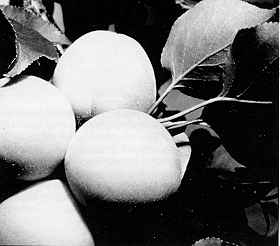Current Issues
One of the most exciting fields in botany today is biotechnology. Because of very recent advances in genetics, plant scientists have tools to splice genes from one plant into another. The potential usefulness of this is staggering. For example, several amino acids required in the human diet are not produced very well by plants - It may be possible to make major food crops more nutritious by adding genes to produce these deficient amino acids. More research is required, however, before this type of gene transfer becomes useful and practical.
Another challenging area of basic biological research involves cell membranes. All forms of life have cells and all cells have membranes. Plant scientists are trying to understand the important cell activities that involve membranes. For example, living things need energy to survive, but they need cell membranes to use this energy. Membranes also help move materials into and Out of cells. Plant biologists want to understand how membranes work since living things could not exist without cell membranes. We are learning more and more about plant genes and what they do. Now botanists are turning their attention to how genes work, or express" themselves. Plants are complex living organisms. How a plant develops from a single cell into a complex organism with billions of cells is a problem that will occupy many botanists for years to come. The ease with which we can manipulate plant cells, compared to animal cells, makes plants an ideal model system for such studies.
Teaching botany is a challenging and rewarding career. A teaching botanist must understand a variety of subdisciplines of the field and be able to explain them to students. This provides an opportunity to inspire new generations with an understanding of, and appreciation for, plants. Many other careers for botanists do not involve teaching or research. Some botanists work in marketing or administration of plant-related industries such as pharmaceutical companies, seed companies, biotechnology firms, scientific publishers and biological supply houses. Other plant biologists work in museums, herbaria, and botanical gardens. Some, with additional training, become scientific writers, computer programmers, botanical illustrators, or even lawyers or physicians. Service in public affairs, at the community and national levels, is an increasingly important role for plant biologists.
|






